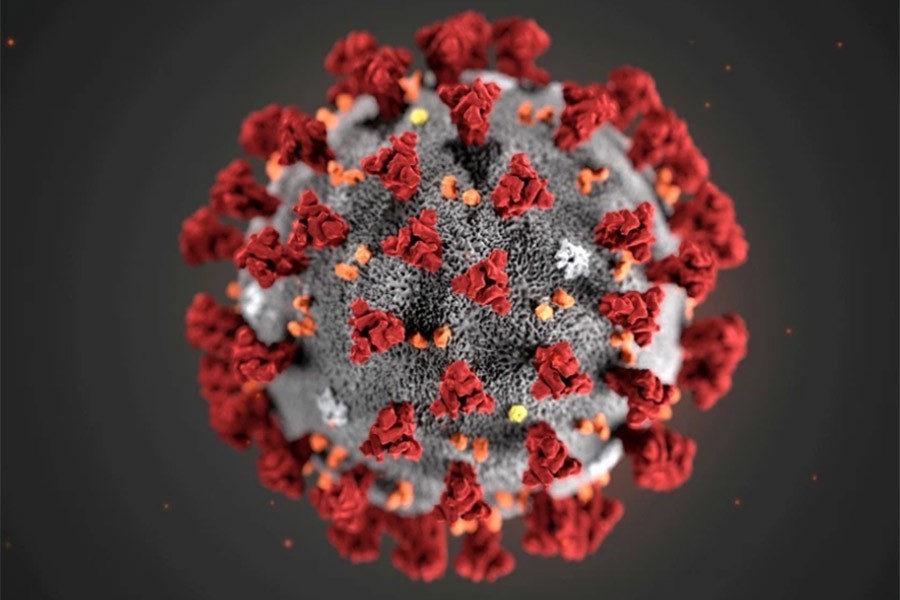
Published :
Updated :

When the first wave of the pandemic hit Bangladesh's shore, many thought, as it often happens, this calamity will also pass after running its course. Far from that, it now appears, the pandemic has come to stay. However, many scientists believe, the latest in the salvo of pandemic attacks, the Omicron variant may be the last one. Even if it turns out to be the case, the possibility is that, as an overwhelming number of epidemiologists think, the virus will remain dormant and from time to time become active like influenza and common cold. But for influenza or common cold, strict health protocols like maintaining social distance and wearing facemask are not practised.
Now, if the Covid-19 becomes endemic, will it be possible for people to go about their daily activities in the same way as they did before the pandemic? If not, then the post-pandemic change in lifestyle will continue maybe with some modifications. In that case, the transformative changes that have taken place in the entire healthcare regime and medicine during the last 22 months of the world's living with the pandemic are going to become the new normal. Consider the introduction of new personal use articles like facemasks, personal protection equipment (PPE), hand sanitizers, etc in people's day-to-day life. Similarly, the medical diagnostic industry has been geared to adapt to new health care priorities. Ventilators and oxygen supply arrangements etc had always been there but the pandemic has brought quantitative leap in their production and use.
In the same way, tests to detect the existence of the SARS-CoV-2 virus in the body called Nucleic Acid Amplification Tests (NAATS) or viral test are now common. Also, antibody or serology tests are being done to see if there are antibodies, which are created after a person is infected by the virus or is vaccinated. All such tests had existed before the pandemic struck. But they were confined mainly to laboratories and hospitals and not so ubiquitous as they are now. Companies that used to produce the tools and reagents for such tests did those mostly for hospitals and research establishments both public and private. And the requirement of those institutions would determine by what amount those test equipment and reagents should be produced. Now with the spread of the virus to about every home across the globe, new companies have sprung up to meet the demands for these coronavirus test kits by leaps and bounds. Seeing that the virus is mutating into multiple variants, which in turn are sending fresh waves of infection around the world, medical technology companies have developed kits with which individuals can conduct some of the tests by themselves without going to hospital. It is the same kind of business opportunity that diabetes test kits provided before.
Consider the scale of business it involves. And it is possible only if the pandemic continues to exist even if in a milder form. As the second, the Delta, wave of the pandemic tapered off and the governments everywhere gradually began to lift strict control measures to combat the virus, many such companies began to wind up their business. And the introduction of vaccines as a preventive against the virus was feared to be the final blow to their business prospects. But no, that is not to be. Now the Omicron, the latest entrant in the pantheon of coronavirus variants, can transmit itself with a lightning speed among the people. It has given, so it seems, the producers of coronavirus test kits a new lease of life.
Mention may be made here of some big players in the market like the multinational giants manufacturing medical devices and health care products such the Abbot Laboratories of America and Roche of Switzerland. During the last two waves of the pandemic these two pharmaceutical companies have earned fabulous amounts of revenue by selling Covid-related health care products and medical devices. According to reports, Abbot is a market leader in the area of manufacturing rapid antigen tests. Roche, on the other hand, is the number one in the world in the field of laboratory-based 'polymerase chain reaction' or (PCR) test. As it is common knowledge, this test is done to see if there is any genetic material of the virus present in the blood of a person at the time of testing. And the result of this test is widely accepted as a confirmation of a person's coronavirus disease. Interestingly, fragments of the virus may remain in the body even after a person is cured of the infection. In that case, the person in question will test Covid-positive, though in reality she or he is not.
Whatever the case may be, as the test is in wide use to officially certify if a person is carrying Covid-19 or not, one can well imagine the size of the business involved here. So far, such tests are concentrated mostly in high and middle income countries. Going by the WHO, the tests are yet to reach 99 per cent of the world population especially in the Least Developed Countries (LDCs). If the tests are to cover the rest of the world, what would be the scale of the trade in various Covid-tests including PCR? It simply boggles the mind. But will the cycle of the virus with its different variants continue? This is now the issue that concerns public health experts most, not least the business.


 For all latest news, follow The Financial Express Google News channel.
For all latest news, follow The Financial Express Google News channel.